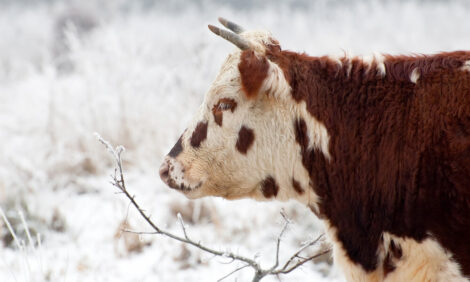



Research explores impact of plant-based meat alternatives on cattle
Reductions in price and increased demand could lower US cattle productionFor every 10% reduction in price or increase in demand for plant-based meat alternates, new research estimates US cattle production will fall approximately 0.15%. Published in Environment Research, the research paper projects the impact of plant-based meat alternatives on cattle inventories and greenhouse gas emissions.
The researchers constructed and calibrated an economic model in order to estimate how a reduction in plant-based meat alternative prices, or an increase in demand for them, would impact US cattle production. The researchers believe that new PBM alternatives that mimic the taste and texture of beef could have significant economic and environmental impacts. Replacing traditional animal-based meats and reducing livestock production could also significantly impact animal welfare, the paper's authors said.
"Whether PBM alternatives can achieve these ends depends on the extent to which consumers are willing to substitute for PBM alternatives, the structure of the meat industry, and the inter-linkages of the livestock industry with the other parts of the economy," said the paper's abstract.
According to their findings, for every 10% reduction in price or increase in demand for PBM alternatives, US cattle producers’ economic welfare falls by $300 million year per year, and US consumer welfare rises by $513 million year per year.
According to the study's authors, key variables affecting model outcomes include: the supply elasticity of cattle, the share of the total cost of cattle used to produce ground beef, and cross price-elasticity of demand between PBM and ground beef.
The authors also believe that increases in US demand for PBM could alter trade patterns, leading to a reduction of beef imports and an increase in beef exports. In this situation, the authors project global greenhouse gas emissions would be further reduced.
"For every 10% reduction in the price of PBM alternatives, we estimate that the global reduction in emissions is equivalent to 0.34% of US emissions from beef production and 1.14% when including reduced land-use change emissions," said the study's authors. "Even substantial reductions in prices of PBM alternatives are unlikely to have substantive impacts on the US cattle population and emissions, suggesting the need to also pursue alternative mitigation strategies, such as innovations to reduce the methane emissions per head.”


